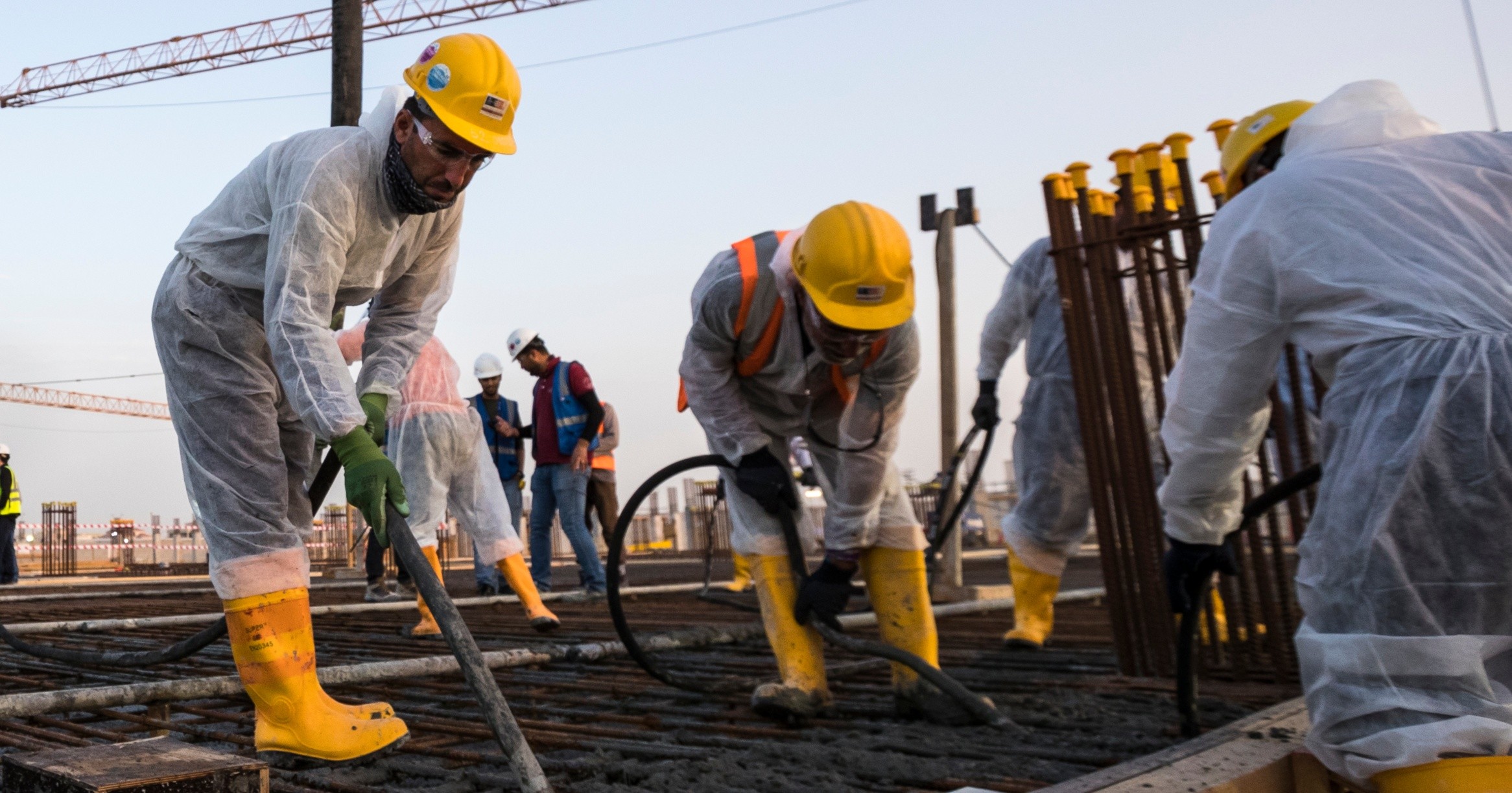.jpg)
_1-itok=GFMKQ6A9.jpg)
The Supreme Committee for Delivery & Legacy (SC), the organisation responsible for delivering the tournament infrastructure required for the 2022 FIFA World Cup Qatar™, and global trade union Building and Wood Workers' International (BWI), have released their second annual report outlining the findings from a series of inspections conducted during 2018.
The Joint Working Group (JWG), set up by the SC and BWI as part of a cooperation agreement in 2016, ensures that workers at the stadium construction sites are supported by rigorous health and safety standards, as stipulated in the SC's Workers' Welfare Standards (WW Standards).
The report covers key findings, non-compliances and observations identified by the JWG during their inspections. It also follows up on actions undertaken to correct non-compliances, with key findings reported, recorded and monitored through an automated online platform called Intelex.
The JWG representatives and inspection team travelled to Doha on six occasions in 2018 to undertake construction site, accommodation site and follow-up inspections. For the first time, the scope of the inspections extended beyond international companies affiliated with BWI to cover the whole SC programme. This included local Qatari construction companies and other international organisations not affiliated with BWI.
H.E. Hassan Al Thawadi, Secretary General of the SC, said: "Transparency and accountability are central to our reform efforts. We believe reporting on our achievements and challenges is integral to ensuring continuous improvement. BWI are a great partner and together we have been able to develop clear plans for remedy and rectification of health and safety issues. We appreciate BWI's expertise and look forward to another year of collaboration and ongoing improvements."
Within the report the JWG also made recommendations to improve aspects of working and living conditions including working at height activities, improved storage, issuance of harnesses and continuing to enhance health record management and training for contractors' medical staff.
The report also outlines the success of strengthened Workers' Welfare Forums (WWF) – a critical grievance mechanism mandated by the WW Standards. The JWG attended some of the elections, where overall voter turnout was close to 85%, thus demonstrating the increased confidence and trust the workers have in the system. The WWF elections are conducted using election procedures established by the SC, with input and recommendations from BWI in 2017.
Ambet Yuson, General Secretary of BWI, said: "This report reflects the hard work and deep commitment of both partners to ensure that workers do not risk their lives and health when they come to work. Our cooperation has ensured the safety, health, decent conditions and treatment of workers. We are proud of the success achieved since our work with the SC began, but we recognise that more needs to done to guarantee a safe and health work environment for workers working on official 2022 FIFA World Cup projects. This continues to be our number one priority."
The recommendations made by the JWG in 2017 resulted in installation of panic alarm systems at Education City Workers Village and Al Wakrah Sixco Village accommodations, improvements in H&S in accommodations, more specifically, accommodations that have sewage and water treatment plants and improvements in kitchen (food) safety and operations. Issues such as working at height, ladder safety, electrical safety and chemical storage were also highlighted, and positive actions taken.
Additionally, the 2017 recommendations resulted in the SC collaborating with UK's TPP and Qatar's IIS Holdings to successfully roll out SystmOne, an automated electronic medical records management system, which is the first reported system of its kind on a construction programme in the Gulf Cooperation Council (GCC).
The cooperation agreement between SC and BWI has been extended for 2019 and joint inspections commenced in February.

